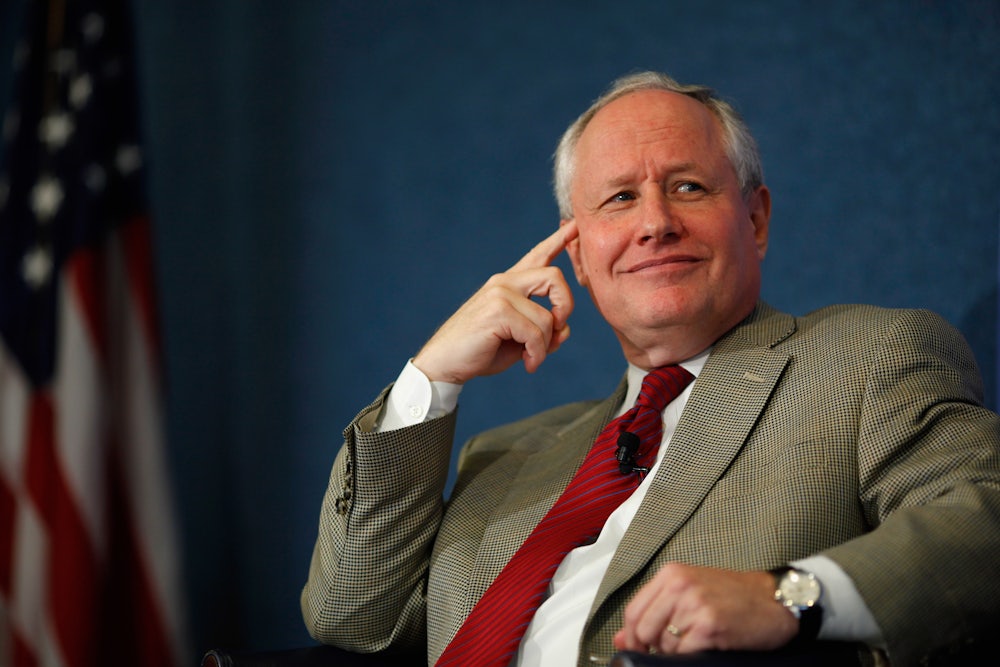#NeverTrump has always meant different things to different conservatives. But the proximity of the Republican convention is bringing a key division within the campaign to stop Trump into sharp focus.
That division is between those who believe Trump should be denied the presidency, and those who believe Trump should be denied the GOP nomination altogether; it’s between those who recognize that Trump has forced the party to confront massive problems before it can responsibly stand for the presidency again, and those who seem to believe everything in the Republican Party was fine until Trump came along.
For the purposes of handicapping the coming election, the distinction is unimportant. As weak a candidate as Trump is proving to be, any not-Trump alternative who emerged from the convention as the nominee would be similarly weak, weighed down by a perception of illegitimacy among Trump supporters and other Republican voters.
But for the purposes of gaining insight into the right’s assessment of its own health, the schism matters a great deal.
This past spring, when defeating Trump was still mathematically possible, #NeverTrump was a worthy endeavor, intended to convince Republican voters not to make a grievous mistake. After having failed to convince those voters, and then failed to convince GOP leaders—like RNC chairman Reince Priebus, and House Speaker Paul Ryan, and Senate Majority Leader Mitch McConnell—to disclaim the winner of their primary, one #NeverTrump faction still believes the party should wrangle its way into power anyhow, despite the dysfunction Trump has revealed.
Prediction: 2016 GOP MVP will be @Reince, who steps up, ensures open convention, saves party from Trump and produces ticket that wins in Nov
— Bill Kristol (@BillKristol) June 21, 2016
A political party has no obligation to go down to defeat in order to satisfy a minority faction of the party's voters.
— Dan McLaughlin (@baseballcrank) June 29, 2016
There is no recognition here of the many ways Republicans and conservative media enabled Trump before he declared his candidacy, or of the steps they’ve taken since he clinched the nomination to ratify his victory. In this view, Trump is a freak affliction who sent millions of voters into a fugue state, and, through the sheer force of his presence, is keeping them there. If he can be gotten rid of, then his malign effect will be forgotten.
The convention-coup fantasists studiously omit from their analysis any recognition that Republicans have pandered to this Trumpian plurality for the past eight years. And they blind themselves to the fact that, after Trump won, party leaders like Priebus made their peace with him. Or, at least, they adopt the convenient premise that endorsing Trump speaks in no way to the character of the people who have done it—the people who would run Congress if Republicans were to salvage this election somehow.
Not everyone on the right thinks this is such a superficial problem.
It’s exceedingly strange to cite George Will—whose chief contribution to civic life in recent years has been to serve as a chin-stroking statesman for climate change denial—as an avatar of good sense. But his response to Trump’s victory has been clear-eyed and largely principled. Not only does he regard Trump as an unacceptable nominee, but he argues that the debased Republican officials who’ve endorsed Trump have discredited themselves as fit public servants, too.
Will has left the Republican Party for the time being. Upon his decision, he told the conservative site PJ Media it’s a “little too late” for the GOP to replace Trump, and that Republican voters must “make sure he loses. Grit their teeth for four years and win the White House,” in 2020. Other influential Republicans, including Brent Scowcroft and Hank Paulson, have gone somewhat further still and endorsed Hillary Clinton.
Their counterparts on the right are people like Bill Kristol and Dan McLaughlin— who, if they had their druthers, would breezily hand control of the country to the very people Will won’t let himself be associated with politically any longer.
Trump has drawn admirable qualities out of elite conservatives who under different circumstances would be serving as dutiful apologists for a more acceptable nominee. But for Kristol and company, finding that nominee, and running interference for him, remains the cardinal goal. The competence and moral uprightness of the party their candidate would lead are beside the point. For all their principled willingness to disclaim Trump as an individual figure, here’s one place where they’re still willing to say and do whatever’s necessary to advance conservative power.
